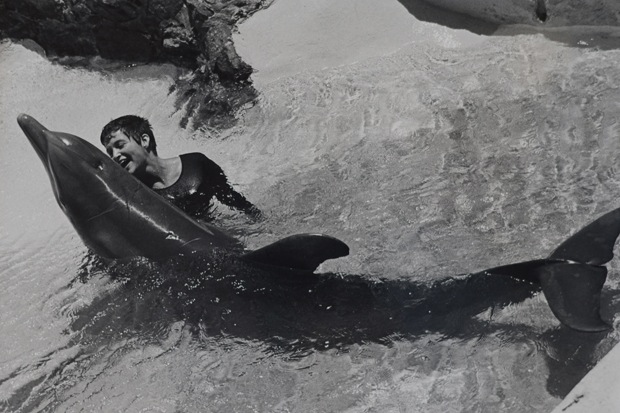Here’s a tricky quiz question for you. What word completes this sentence from a BBC4 documentary on Friday: ‘The world as we know it was created by the…’?
The answer, bizarrely enough, is ‘backbeat’ — because the documentary in question was On Drums… Stewart Copeland!, in which the former Police percussionist took a fiercely drum-centric view of well, more or less everything. This was a programme, for example, that compared Elvin Jones’s stick work for John Coltrane to Moses’s parting of the Red Sea; that attributed the Beatles’ success largely to Ringo; and that put forward Dee Dee Chandler as one of the key figures of 20th-century global history.
So who, you might be ignorant enough to be wondering, was Dee Dee Chandler? He was of course (it turns out) the man responsible for ‘one of the most important inventions in modern music’ — i.e. the bass-drum pedal.
By then, four-beats-to-the-bar drumming, with the bass drum providing the downbeat and the snare the alternating upbeat, had already been developed in New Orleans (rather pleasingly, by freed slaves who’d bought old Confederate Army drums from local pawnshops). But before Dee Dee’s breakthrough, this operated on a strict one-man, one-drum policy, so that two people were needed for a basic beat and more if you wanted something fancier. Now, the way was open for the ‘greatest invention’ of the lot: the drum kit, where the same person could do it all, thus providing ‘the musical paradigm shift of the century’ (that backbeat again) and making the whole world dance.
At which point, enter another neglected global hero: Earl Palmer. On such records as Fats Domino’s ‘The Fat Man’ and Little Richard’s ‘Tutti Frutti’, Palmer established the bass-and-snare backbeat as it still exists today — although, as Copeland’s impressively close analysis of the work of Cream’s Ginger Baker and Led Zeppelin’s John Bonham demonstrated, it was later accompanied by more complicated rhythms too.
Through all of this, Copeland touchingly combined solemn reverence for his forebears with an enthusiasm so infectious that it was possible to enjoy his hardcore drumming chat with fellow practitioners even when you had no idea what he was talking about. (‘You give shape to the air between the beats,’ he told Prince’s drummer Sheila E. admiringly during an in-depth discussion of the nature of funk.)
Only towards the end did his good spirits desert him, as he turned to the troubling rise of the drum machine in the 1980s. Yet even then he managed to be civil — if a little effortfully — when meeting the machine’s inventor Roger Linn (‘to many drummers, Beelzebub himself’), before cheering himself up by declaring that live drummers have never been replaced and that ‘we still rule’.
The bad news is that the fourth series of Catastrophe (Channel 4, Tuesday) — written by and starring Sharon Horgan and Rob Delaney — will be the last. The good news is that it remains as great as ever: unsparingly clear-eyed about the strange business and dark undercurrents of marriage and parenthood, yet without being remotely cynical about either.
We rejoined the characters Sharon and Rob just as he was being sentenced to community service for drink-driving. On the one hand, this left Sharon resentful that she was now looking after their three young children by herself. On the other, it gave her a welcome advantage in something that the programme identifies with characteristic shrewdness as an undiscussed but major feature of married life: the battle for the moral high ground.
But, as the programme also identifies, when a couple like each other as much as Rob and Sharon do (if sometimes a bit secretly), this battle is essentially recreational. The episode duly ended, as Catastrophe episodes so often do, with the two having sex — not passionately, obviously, but with a kind of amused affection that I suspect most married middle-aged viewers would settle for.
Finally, by way of stark contrast to Catastrophe’s confident realism, Sunday brought us Semi-Detached (BBC2) — a sitcom pilot which tried so desperately hard to make us laugh that it ended up feeling faintly needy. For some comedy characters, it might be enough to have a promiscuously gay dad, an ex-wife who lives over the road with her much richer new husband and a daughter who’s chosen to celebrate her 17th birthday by shaving her head. Here, though, Stuart (Lee Mack) was also supplied with a brother on the run from the police — and a girlfriend who’d just gone into labour determined that childbirth would be beautiful, but couldn’t get to hospital because cows were blocking all the roads.
The plotting, in fact, proved quite neat. The trouble was that, because every character and incident belonged to Planet Sitcom rather than anything recognisable as our world, this only made the whole thing feel even more contrived.






Comments